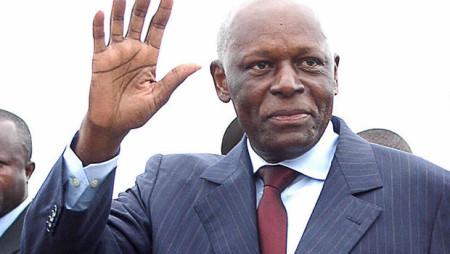
José Eduardo dos Santos’s announcement that he intends to step down as Angola’s president in 2018 has been met with a mixture of surprise and scepticism in the former Portuguese colony.
One of Africa’s so-called “presidents for life”, Dos Santos has made a similar pronouncement before – as far back as 2001, when he pledged not to seek re-election at the next poll – only for it to be delayed until 2008, which was apparently sufficient time for him to have forgotten 2001 completely.
Then there is the question of the timing of the announcement, which comes in the midst of economic turmoil brought on by the falling price of oil. The crisis is a clear indictment of the Dos Santos leadership: he bears responsibility for the fact that Angola has failed to capitalise on its enormous oil wealth.
Constitutionally, Dos Santos, who has ruled Angola for 37 years, could remain in power until at least 2022. And while most have treated last Friday’s announcement with suspicion, others believe him and are concentrating on the successor. Will it be José Filomeno, eldest son and head of the sovereign wealth fund, or a senior official such as Bornito de Sousa, João Lourenço or António Pitra? Surely, it can no longer be vice-president Manuel Vicente, the bruised former head of Sonangol who is reeling under new corruption allegations? None of these candidates, however, is likely to usher in dramatic change – at least not of their own volition.
“None of these people will find favour with an increasingly restless public, or with MPLA old-timers, who will resent a political newcomer being appointed simply because of connections with the veteran leader. So two years hence, the president might again present himself as the least bad option. But, at age 73, he must know the question cannot be put off forever,” Angola expert Justin Pearce told the BBC.
Angola’s main opposition, the National Union for the Total Independence of Angola (Unita), is just as sceptical. “We don’t believe it because it is not the first time he says that… He is still there, so let us wait and see. On the other side, it’s true Mr Dos Santos is tired because he has been in power for [37] years and it’s quite a lot of time,” spokesperson Alcides Sakala told Voices of Africa.
If Dos Santos does leave, his departure will have significant ramifications for Angola. Key to Dos Santos’ regime has been his skilful manipulation of friend and foe alike. Any successor will struggle to match his political might, greatly increasing the potential for upheaval and unrest within the ruling elite.
The identity of Dos Santos’s chosen successor is also key. Dos Santos would be wise to recall the example of Egypt’s Hosni Mubarak, whose blatant grooming of his son Gamal Mubarak for the presidency played a key role in sparking the social unrest which led to the Egyptian revolution in 2011.









